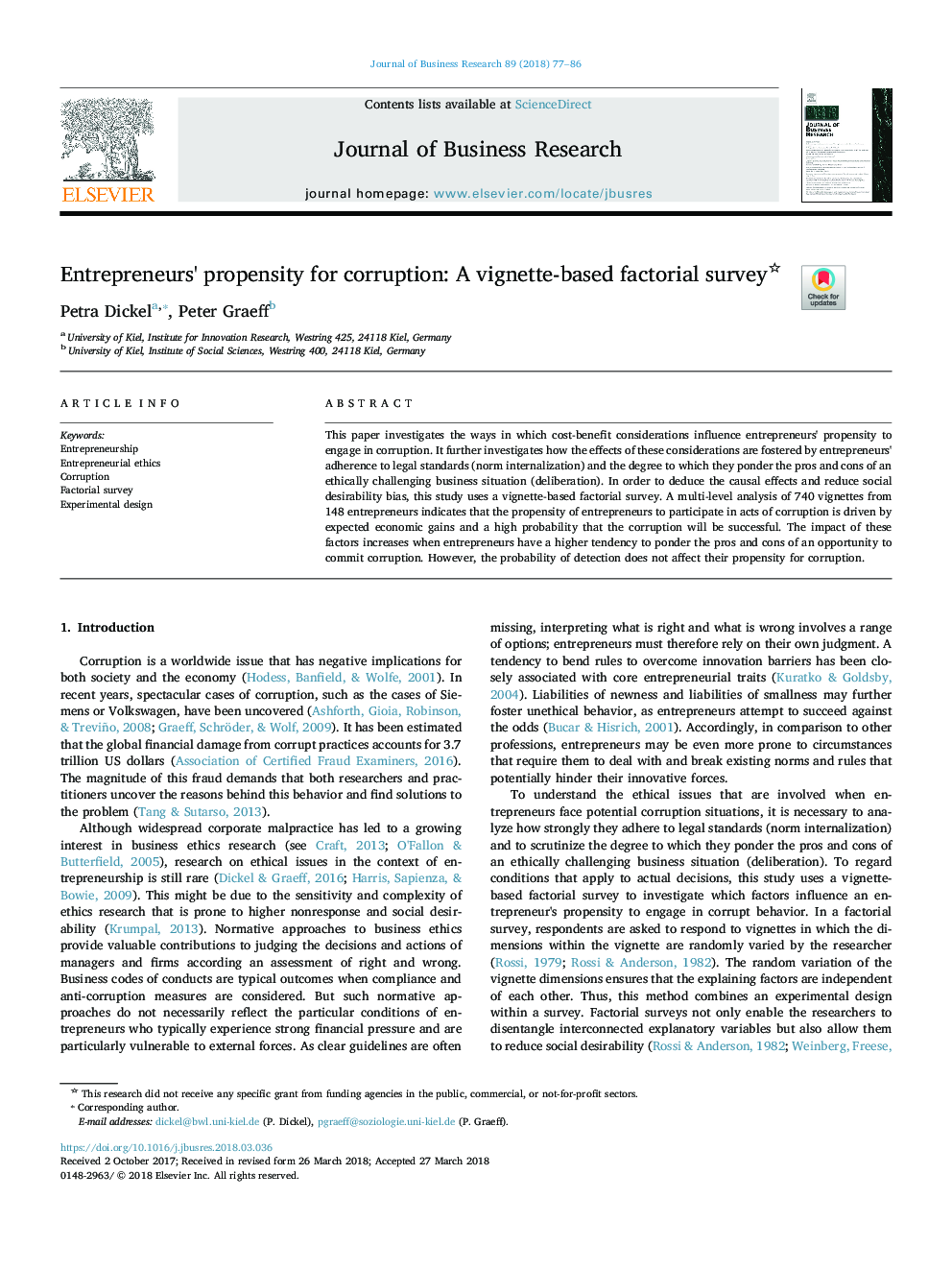| Article ID | Journal | Published Year | Pages | File Type |
|---|---|---|---|---|
| 7425139 | Journal of Business Research | 2018 | 10 Pages |
Abstract
This paper investigates the ways in which cost-benefit considerations influence entrepreneurs' propensity to engage in corruption. It further investigates how the effects of these considerations are fostered by entrepreneurs' adherence to legal standards (norm internalization) and the degree to which they ponder the pros and cons of an ethically challenging business situation (deliberation). In order to deduce the causal effects and reduce social desirability bias, this study uses a vignette-based factorial survey. A multi-level analysis of 740 vignettes from 148 entrepreneurs indicates that the propensity of entrepreneurs to participate in acts of corruption is driven by expected economic gains and a high probability that the corruption will be successful. The impact of these factors increases when entrepreneurs have a higher tendency to ponder the pros and cons of an opportunity to commit corruption. However, the probability of detection does not affect their propensity for corruption.
Related Topics
Social Sciences and Humanities
Business, Management and Accounting
Business and International Management
Authors
Petra Dickel, Peter Graeff,
